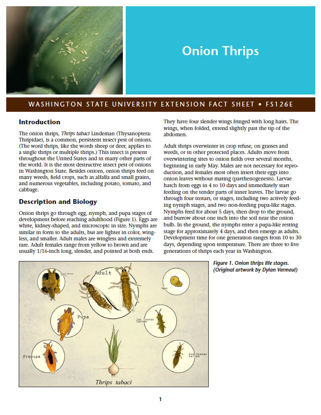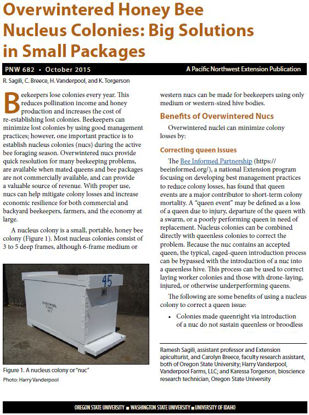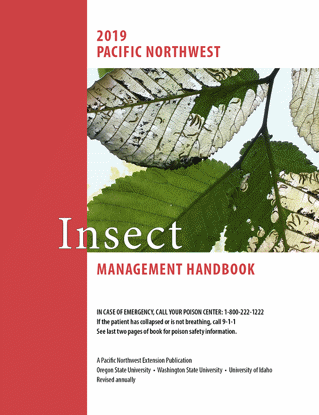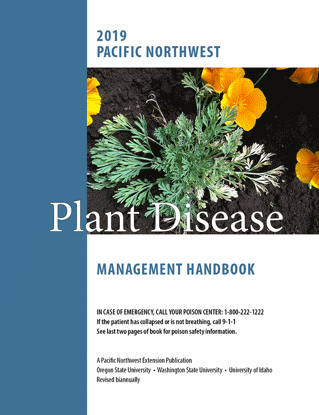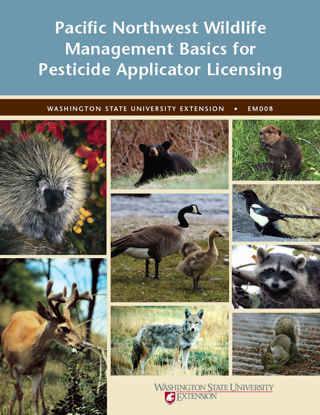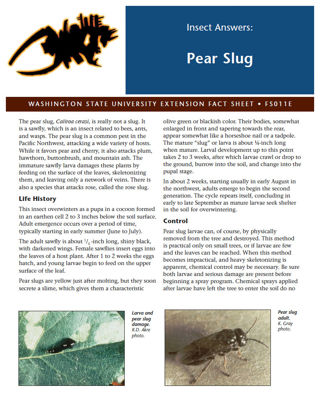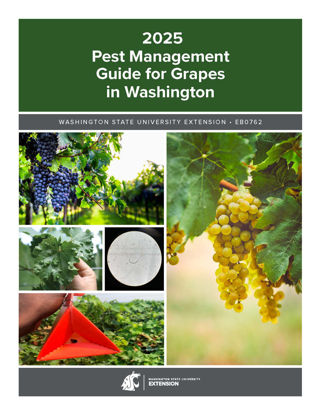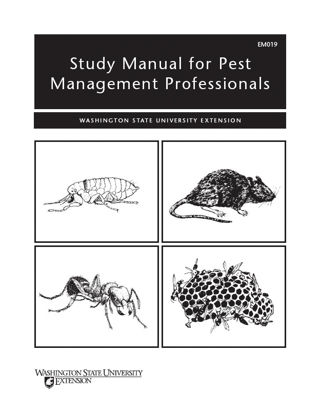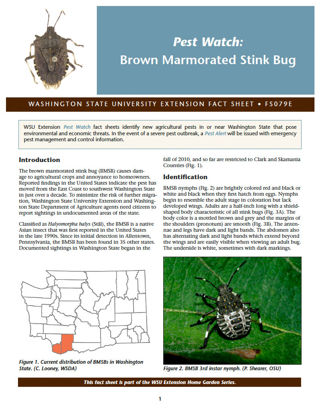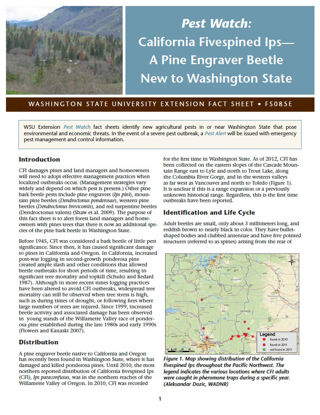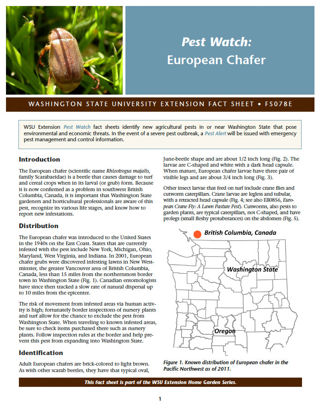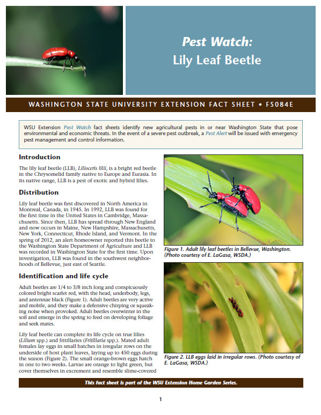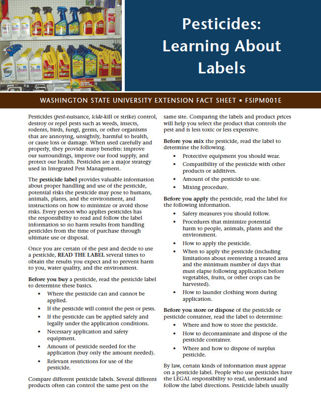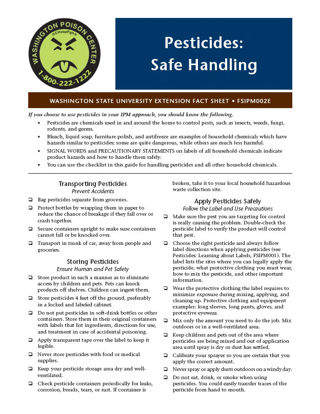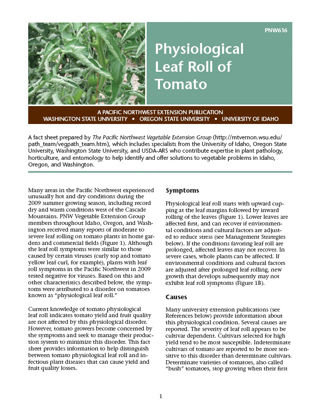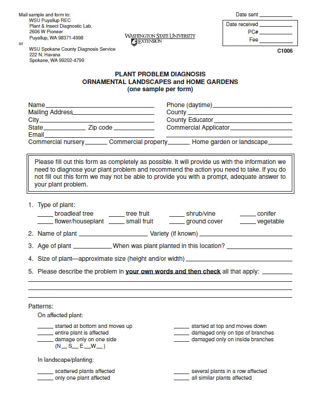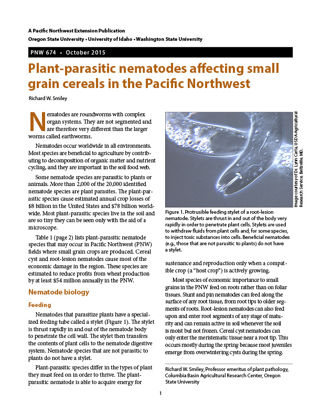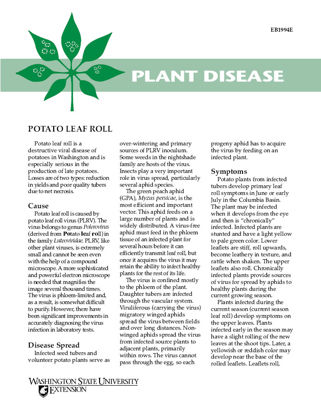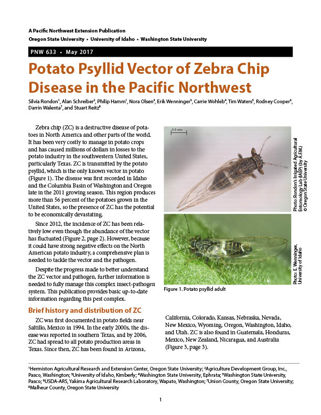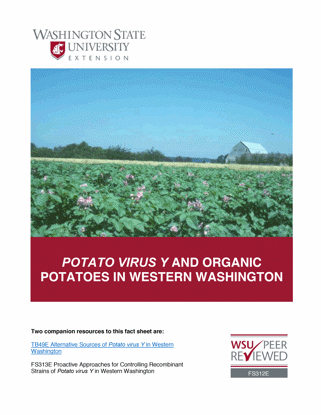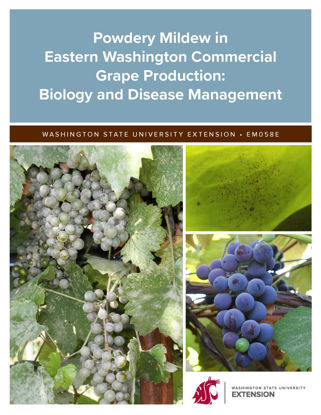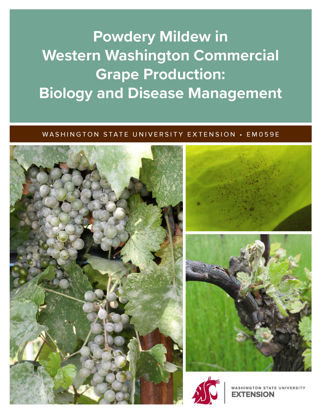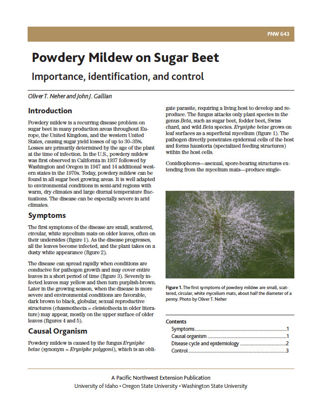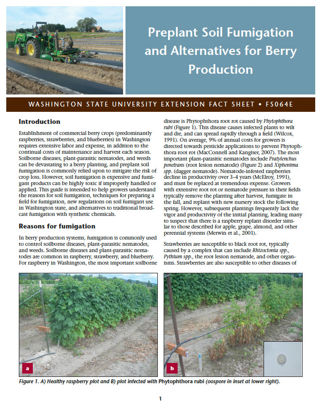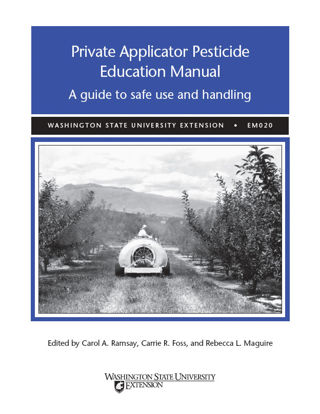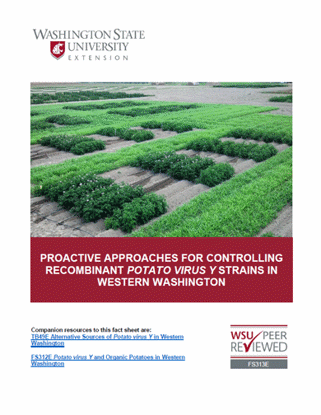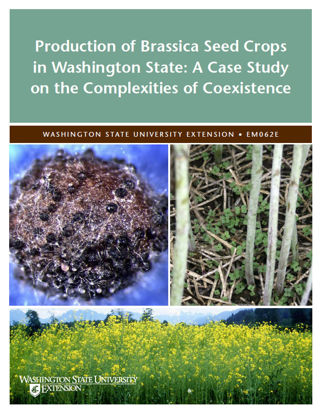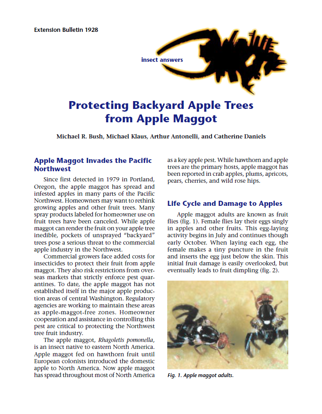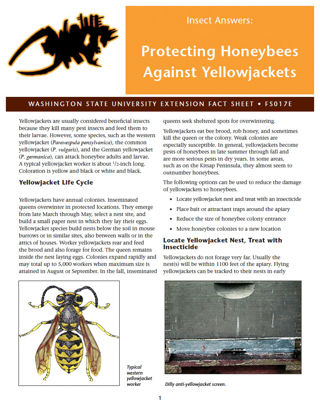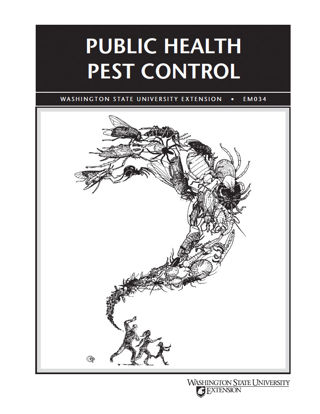Pests, Plant Diseases, and Weeds
Pests and Plant Diseases
Onion Thrips
Overwintered Honey Bee Nucleus Colonies: Big Solutions in Small Packages
This publication describes how commercial and backyard beekeepers can minimize colony losses and related problems by establishing nucleus colonies.
Reviewed by WSU specialist W.S. Sheppard. ...
Pacific Northwest ( PNW ) Insect Management Handbook
A comprehensive guide to insect management in commercial crops and environments and in home landscapes and gardens in the Pacific Northwest. Covers pesticide safety and toxicity, protecting bees, adjuvants, mixing tables, calibration, and biological control. Other sections cover a wide variety of agricultural and nonagricultural products such as commercial vegetables, small fruit, turf and ornamentals, hay and pasture, grains, seeds, home gardens, greenhouses, livestock, poultry, household, and public health. Each section describes pests, the damage they do, and recommended management.
Pacific Northwest ( PNW ) Plant Disease Management Handbook
Pacific Northwest Wildlife Management Basics for Pesticide Applicator Licensing
Pear Slug
Pest Management Guide for Grapes in Washington
This guide is now available in electronic format only.
Guide to control of diseases, insects, weeds, and vertebrate pests on commercial grapes. Weed controls - both soil-active and foliage-applied herbicides - are outlined for new and established plantings. Disease and insect controls are coordinated to pest and crop stage.Pest Management Study Manual for Pest Control Operators
Pest Watch: Brown Marmorated Stink Bug (Home Garden Series)
Pest Watch: California Fivespined Ips (Home Garden Series)
Pest Watch: European Chafer (Home Garden Series)
Pest Watch: Lily Leaf Beetle (Home Garden Series)
Pesticides: Learning About Labels
Pesticides: Safe Handling
Physiological Leaf Roll of Tomato
Plant Problem Diagnosis Home and Ornamental Landscape
Plant-parasitic Nematodes Affecting Small Grain Cereals in the Pacific Northwest
Discusses several species of plant-parasitic nematodes that occur where small-grain crops are produced in the Pacific Northwest. Covers nematode biology, symptoms of injury, yield constraints, man ...
Potato Leaf Roll
Online Only
Causes, symptoms, and management for potato leaf roll, a viral disease which is particularly problematic in the production of late potatoes. Replaces EM2704. ...
Potato Psyllid Vector of Zebra Chip Disease in the Pacific Northwest: Biology, Ecology, and Management
Potato Virus Y and Organic Potatoes in Western Washington
Powdery Mildew in Eastern Washington Commercial Grape Production: Biology and Disease Management
Powdery Mildew in Western Washington Commercial Grape Production: Biology and Disease Management
Powdery Mildew on Sugar Beet: Importance, Identification, and Control
Preplant Soil Fumigation and Alternatives for Berry Production
Private Applicator Pesticide Education Manual
Covers federal and Washington State pesticide laws, pesticide formulations, label information, pesticide hazards and health concerns, safe use of pesticides to protect people, the environment, nont ...
Proactive Approaches for Controlling Recombinant Strains of Potato virus Y in Western Washington
Production of Brassica Seed Crops in Washington State: A Case Study on the Complexities of Coexistence
Protecting Honeybees Against Yellowjackets
Yellowjackets are usually beneficial because they kill many insect pests. However, some species, such as the western yellowjacket (Paravespula pennsylvanica), the common yellowjacket (P. ...

